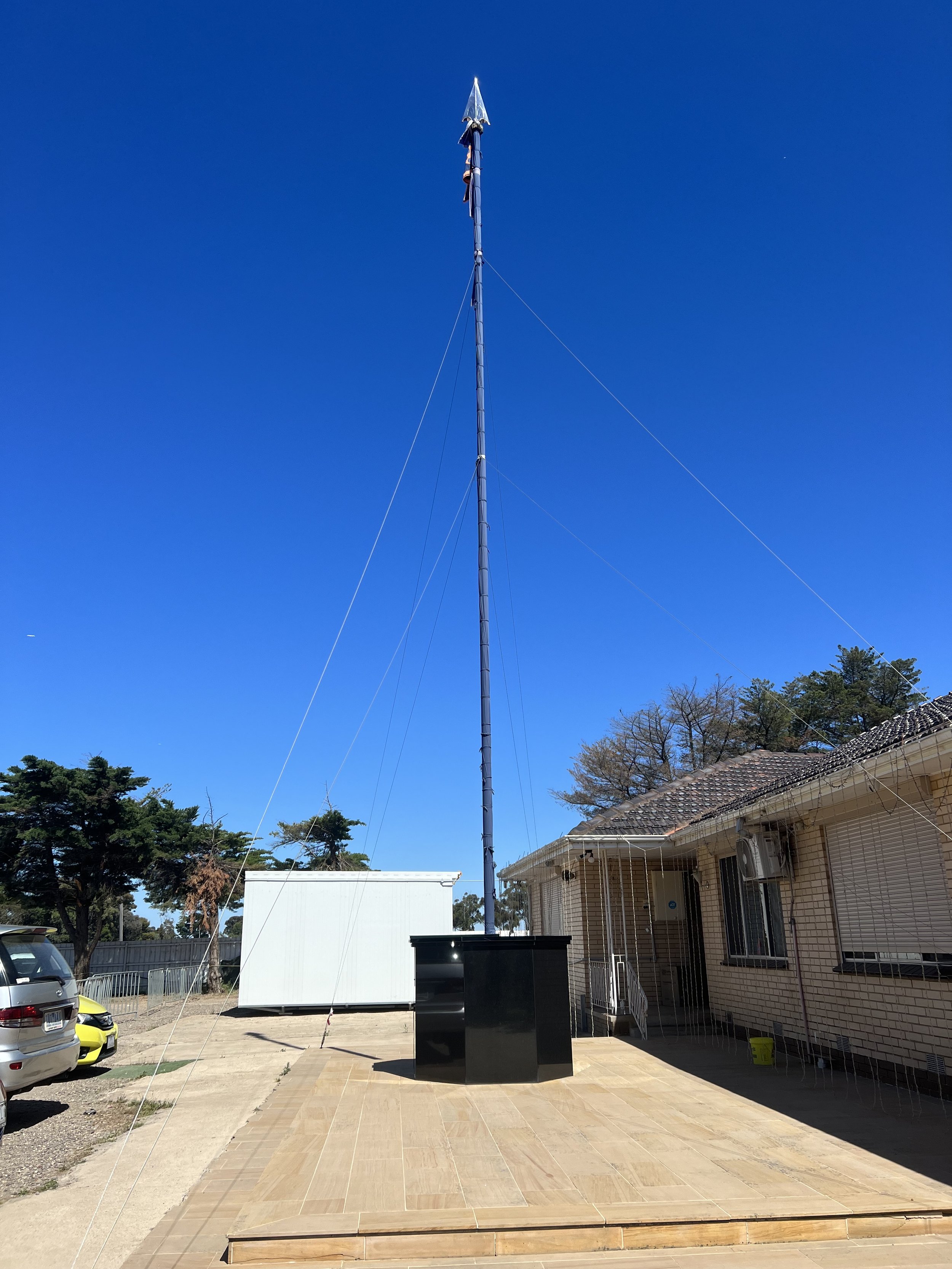
Dal Baba Bidhi Chand Ji Khalsa Shaouni Sikh Community
For the Dal Baba Bidhi Chand Ji Khalsa Shaouni Sikhs in Plumpton, volunteering is an integral part of life. It the reason why they have established themselves as a thriving community in the area and how they provide support and services to the surrounding neighbourhood. This case study will examine their way of volunteering, how it differs from Western approaches and how it enables the community to support each other so successfully.
The Dal Baba Bidhi Chand Ji Khalsa Shaouni Sikh community have been congregating at their Gurdwara (Sikh place of worship) since was built in 2014 (entirely by volunteers!). Members travel there from the surrounding suburbs of Hillside, Woodlea and Caroline Springs and the community is now several thousand strong. They welcome people of any gender, race, religion or social status to their Gurdwara and serve free meals at a langer (communal kitchen) on site.
The Dal Baba Bidhi Chand Ji Khalsa Shaouni approach to volunteering is a unique one. There are no formal procedures in place to manage volunteers and the hierarchy is very flat. A few key people co-ordinate things but they generally operate at the same level as everyone else. People from all walks of life work side by side and social status does not dictate who gets allocated what roles. Furthermore, there is no official induction, compliance checks or training to prepare volunteers - they turn up, offer their services and perform a task. The operation is successful because at the Gurdwara there is a general understanding of the work that needs to be done. Volunteers also have a clear idea of what they expect when they offer their services, and these two things are almost always in alignment.
During busy days of worship at the Gurdwara, the Dal Baba Bidhi Chand Ji Khalsa Shaouni Sikhs can feed up to 3000 people at the langer. This requires donations from the community and a big team of volunteers to be successful. Roles such as making chapati, cooking rice, serving food, deep frying, boiling lentils, washing / cleaning all need to be performed if everyone is to eat, and community members gladly step up to lend a hand. Any time there is a specific need for volunteers eg more servers are required, word will go around the temple and positions will be filled quickly. Food services goes off without a hitch and everyone leaves the langer well fed.
The volunteering is not just confined to the Gurdwara, the Sikhs also work in the wider community. During the Summer 2019/20 bushfires the Dal Baba Bidhi Chand Ji Khalsa Shaouni sent some representatives up to the relief centres to provide support. While they were there, they gathered information on the numbers using the centre and the relief items they were in need of. This was relayed back to the community in Plumpton so enough food could be made for victims and any essential items could be sourced. On one occasion there was a shortfall in baby formula at a centre, so a call was placed to the community and by that night there was enough ready to be transported up the following morning.
The community’s style of volunteering is very different to the formal, Western approach. By its nature it is far more fluid. It is open, flexible, bounded by needs of circumstance and place based. It doesn't need to have rigid structures to be effective as volunteers have clear understanding of what they want, what is expected of them, and how they can contribute - everyone is on the same page. Given how wider trends in the country point to the fact that volunteer numbers are declining, it is amazing to see that the community is always able to fill a role when volunteers are required.
Another difference is the fact that volunteering is ingrained in Sikh culture. A core principle of the Sikh religion is to perform acts of giving without any expectation of return, which is called Seva. Community members have a duty to perform Seva and to share what they have with one another. To be a Sikh is to perform Seva, they are intrinsically linked. This is why there is no shortage of volunteers at the temple, calls for equipment and resources are always filled and food is delivered to where it is most needed.
The success the community has with their volunteers means there are many lessons that can be learned from them.
An important one is prioritising the experience of the volunteers. During a visit to the Gurdwara, Volunteer West asked some of the members about what their most memorable experiences volunteering were and the answer was always the same - every volunteer experience is a memorable one! This took us by surprise and showed us how powerful an experience volunteering was for the community. If every VIO was able to provide positive experiences like that for their volunteers, they would create an amazing working environment. This is key to building momentum and ensuring the long-term success of volunteer programs.
Another important take away is the flexible nature of the Sikh approach to volunteering. If you can adapt positions according to your volunteer’s skillset, volunteers will feel supported and engaged and more likely to offer their perspective and contribute. It will also give them the confidence they need to undertake their role. In addition, the more you can accommodate your volunteers, the more helping hands you'll have available to carry out tasks.
There was a moment during Volunteer West’s visit to the Gurdwara when one of our volunteers made the comment that they would love to take this approach to volunteering home with them to the Philippines, share it and help it spread. This had a profound effect on the Sikhs who heard it, and it has stuck with them to this day. The Sikhs’ response was just as insightful. They said that the experience at the Gurdwara is a unique one, and it may be difficult to take away and replicate. Instead, the best thing was for people to come to the Gurdwara and see for themselves what great work is done by volunteers - experiencing the culture and the spirit of generosity was the most powerful way to understand it.
On that note the The Dal Baba Bidhi Chand Ji Khalsa Shaouni are proud to welcome anyone who has an interest in learning about the community and would like to experience the work they do firsthand. If you would like to get in touch, the best way to contact them is through their facebook page here.










